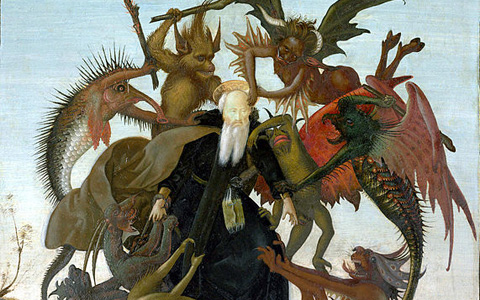When a person contracepts, he or she commits not one mortal sin, but seven. The use of contraception is forbidden in the Catholic Church for many reasons.
I shall list the Ten Commandments and note which ones are deliberately broken by those who contracept. My comments are in blue.
Exodus 20 Douay-Rheims
20 And the Lord spoke all these words:
2 I am the Lord thy God, who brought thee out of the land of Egypt, out of the house of bondage.
3 Thou shalt not have strange gods before me. (1) Idolatry is the first sin of contraception for several reasons. One is playing God and not letting God be God in creating life. One is also making sex and pleasure into gods, thus denying God His sovereignty. One becomes or tries to become God.
4 Thou shalt not make to thyself a graven thing, nor the likeness of any thing that is in heaven above, or in the earth beneath, nor of those things that are in the waters under the earth.
5 Thou shalt not adore them, nor serve them: I am the Lord thy God, mighty, jealous, visiting the iniquity of the fathers upon the children, unto the third and fourth generation of them that hate me:
6 And shewing mercy unto thousands to them that love me, and keep my commandments.
7 Thou shalt not take the name of the Lord thy God in vain: for the Lord will not hold him guiltless that shall take the name of the Lord his God in vain. (2)
8 Remember that thou keep holy the sabbath day. (3)
9 Six days shalt thou labour, and shalt do all thy works.
10 But on the seventh day is the sabbath of the Lord thy God: thou shalt do no work on it, thou nor thy son, nor thy daughter, nor thy manservant, nor thy maidservant, nor thy beast, nor the stranger that is within thy gates.
11 For in six days the Lord made heaven and earth, and the sea, and all things that are in them, and rested on the seventh day: therefore the Lord blessed the seventh day, and sanctified it.
12 Honour thy father and thy mother, that thou mayest be long lived upon the land which the Lord thy God will give thee. (4) Contraception denies grandparents grandchildren, and breaking the family bond of generations. Thus, one no longer honors the family or one's parents when one contracepts.
13 Thou shalt not kill. Obviously, as all but a few contracepts kill the fertilized egg, now a human being with a soul, contraception is murder. (5)
14 Thou shalt not commit adultery. Fornication, having sex outside of marriage, is covered under the term adultery. Adultery is having sexual relations with a married person, but from the earliest days, fornication, having sex outside of marriage, and thus endangering the entire concept of marriage, is part of this sin. Sins here include sodomy. This sin is repeated in the traditional ninth commandment, so contraception breaks that one as well. (6)
15 Thou shalt not steal. (7) When one contracepts, one steals not only from the glory of God in creating a new person, but one steals life. One also steals from one's self the dignity of being a human being in co-creating with God in the image and likeness of God, in which we were made.
16 Thou shalt not bear false witness against thy neighbour. (8) Contraception is lying, as one is being deceitful about the real purpose of intercourse, which is procreation. Also, one is lying to one's self about the reality of marriage, and the fact that the marriage act only belongs in a sanctified marriage.
17 Thou shalt not covet thy neighbour's house: neither shalt thou desire his wife, nor his servant, nor his handmaid, nor his ox, nor his ass, nor any thing that is his. Coveting or desiring what is illicit like a person when one is not married, or even desiring someone above God is the sin when contraception is used for the enjoyment of sex without procreation. (9 and 10). Also, contraception is done because of the desire for things, for choosing things over life--such as houses, status, money, vacations, comfort...etc.). Therefore contraception breaks both th 9 and 10th commandments.
18 And all the people saw the voices and the flames, and the sound of the trumpet, and the mount smoking: and being terrified and struck with fear, they stood afar off...
Thankfully, we have the wonderful sacrament of Confession to release us, to absolve us from such sins, and to give us the grace to start over again in Christ.









.jpg)

.JPG)


